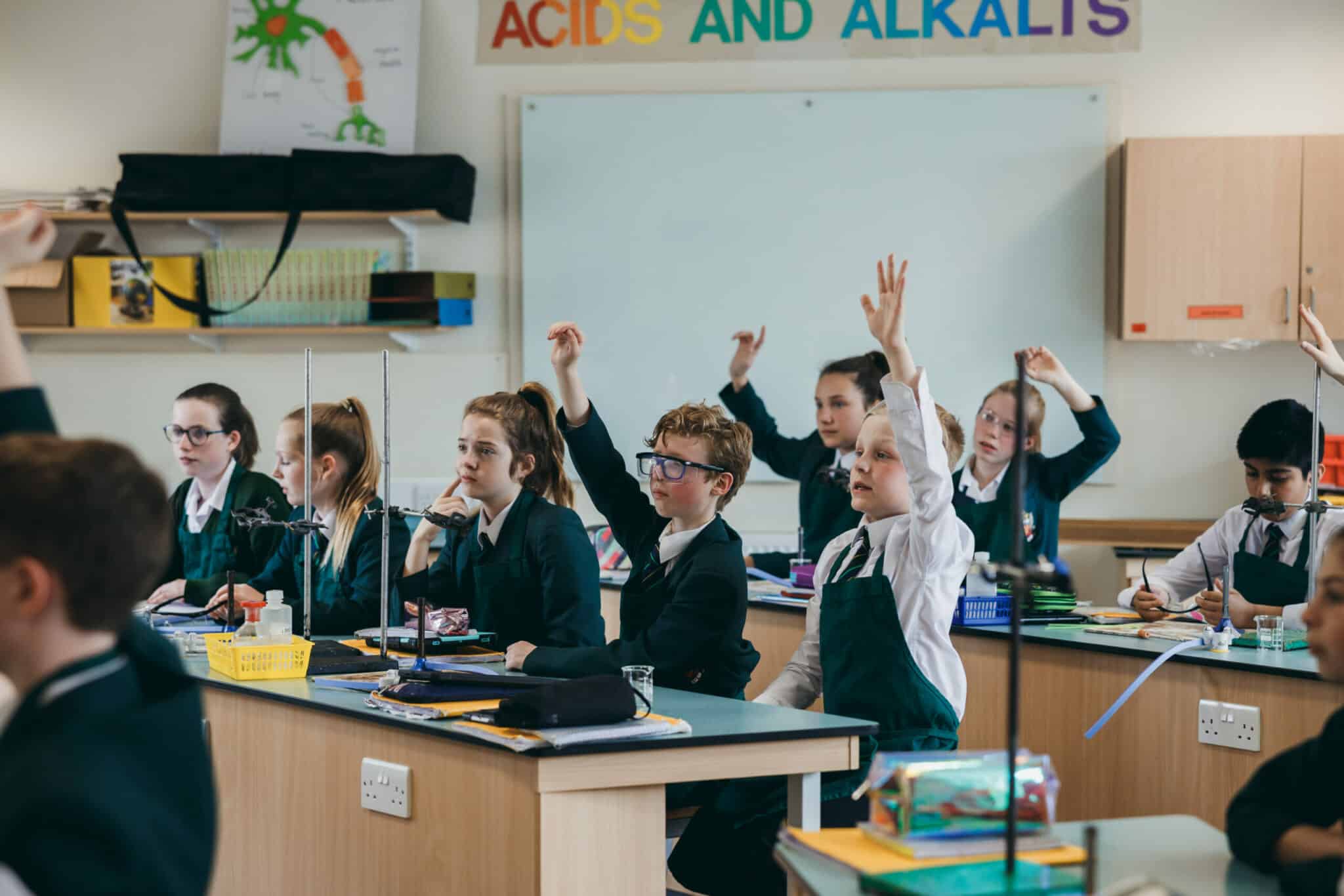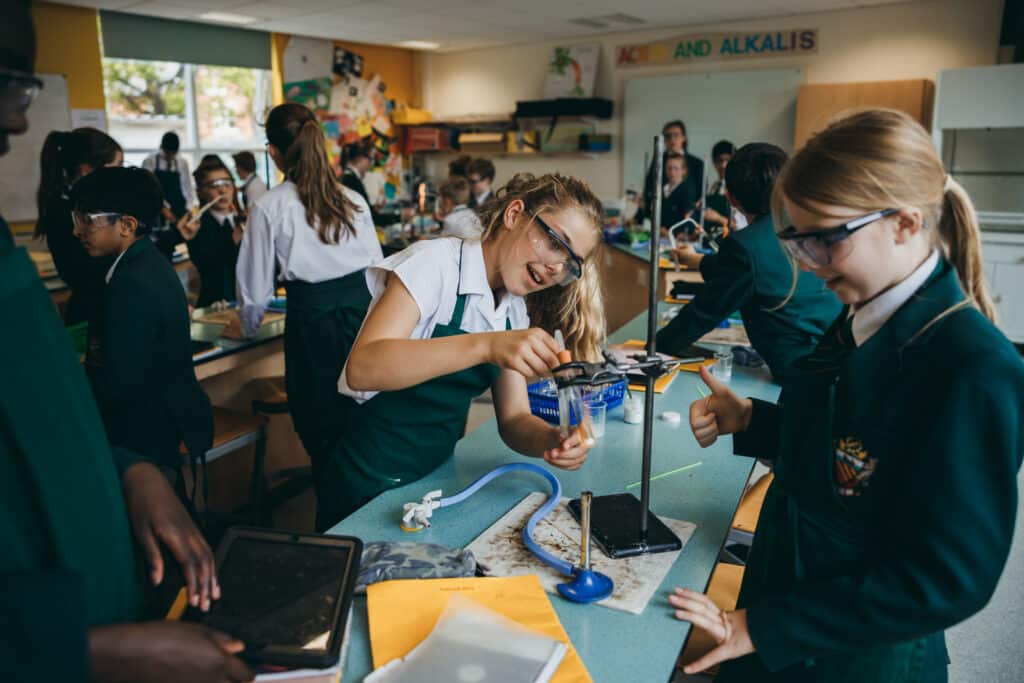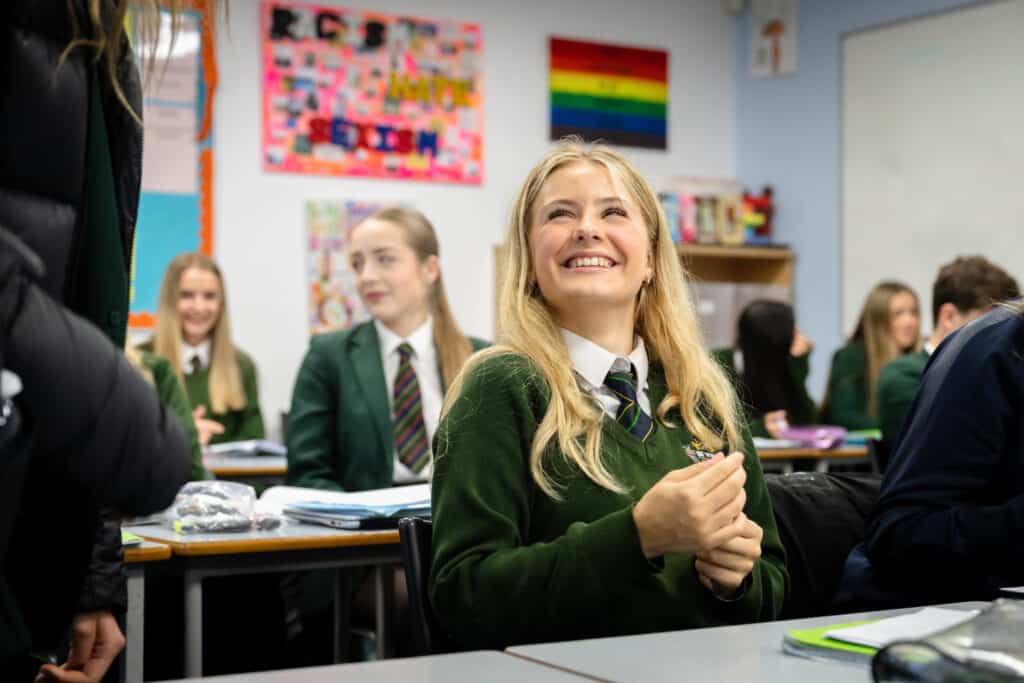Academic Life
Inspiring curious minds. Preparing confident futures.

Future focused learning

We are proud of our excellent academic results which open doors to impressive university courses, highly sought-after apprenticeships, overseas adventures or whatever path is right for the individual. But we know that exam success is only one part of the picture.
Our academic approach is both rigorous and forward-thinking, combining high expectations with the freedom to explore, question and connect. We don’t just teach subjects, we teach young people to think critically, creatively and independently.
Our teachers follow research-informed methods and digital tools to engage learners. We invest in training and technology not for the sake of it, but because it enables us to meet each child where they are and help them get to where they want to be.
This combined approach ensures our students are prepared not only for exams, but for a lifetime of successful learning.
Mr Nick Axon
Deputy Head – Academic

Connecting knowledge

Our unique lower school curriculum
Our unique Lower School curriculum (Years 7–8) is designed to help students join the dots across disciplines and see learning as a connected whole. Alongside strong foundations in individual subjects, students take part in interdisciplinary projects that ask big questions about their identity and the future. These are opportunities for them to grapple with real-world issues and develop the problem-solving skills they’ll need in life beyond school. It’s about building understanding and ensuring students know how to apply what you’ve learned to new and unexpected challenges.

Stretch and support for every student

We offer tailored support and stretch to ensure every student is challenged appropriately. This includes academic enrichment opportunities, mentoring, and bespoke support for students with additional needs or those working towards specific goals.
Our approach is holistic: we care about the grades, but we care even more about the learner behind them.

International Partnerships

GLOBAL MINDSET
Our students represent over 30 languages from around the world and we encourage them to embrace international opportunities through trips, exchanges and work placements. Sixth Formers benefit from long-standing partnerships with schools in Switzerland, Germany, Spain and France.
Our partner schools include:
- KZU (Kantonsschule Zürcher Unterland), a high-achieving state-funded school to the north of Zurich.
- IES Conde de Orgaz, Madrid, a high-achieving state-funded 12-18 secondary school in Madrid.
- Colegio Internacional SEK El Castillo, Madrid, One of the most prestigious and forward-thinking schools in Spain.
- Spark Spanish, Puerto de Santa Maria, Cádiz, A language school in a coastal town across the bay from Cádiz.


